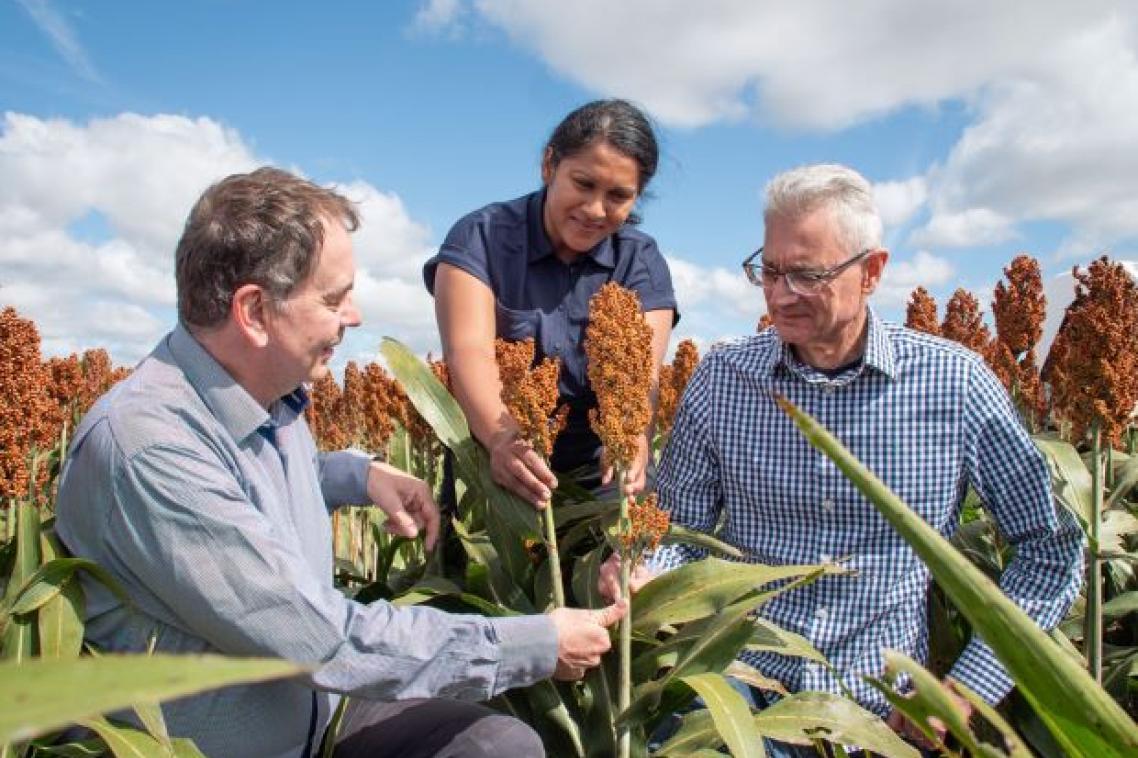Cattle, crocs and now crops: boosting NT’s emerging industry
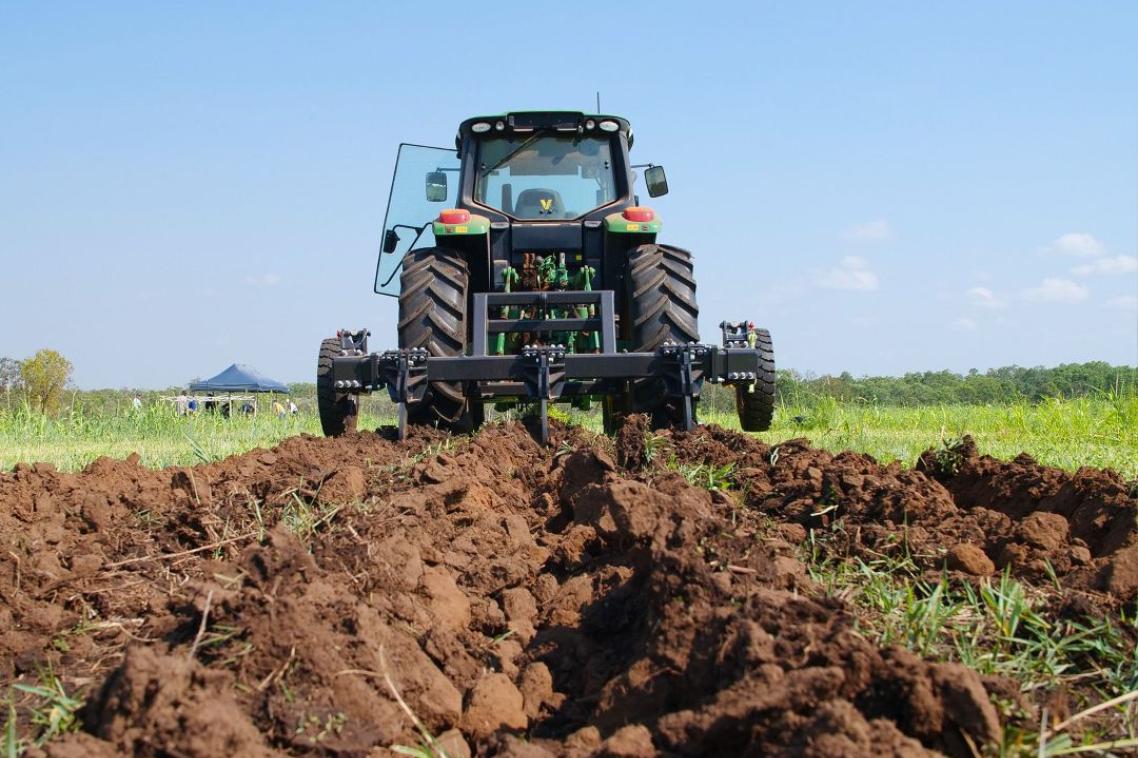
The delving implement in action bringing the clay to the surface.
(Photo credit: The University of Queensland )
Key points
- UQ researchers are trying to improve the fertility and water holding capacity of soil in the Northern Territory.
- A delving implement is being used to disrupt the subsoil and organic matter is being incorporated, a proven strategy used by growers in Southern Australia.
- The trial is being held at 6 sites in the Northern Territory including Darwin, Alice Springs and Katherine.
Researchers from The University of Queensland are digging deep to improve soil health in the Northern Territory and demonstrate the potential of an emerging crop industry.
Lead researcher Associate Professor Yash Dang from UQ’s School of Agriculture and Food Sustainability said the presence of clay beneath the region’s infertile, dry and sandy surface presented an opportunity for farmers.
“Clay can help improve the sandy soil, which is generally low in organic matter and water holding capacity,” Dr Dang said.
“Many growers have tried to apply organic matter to the surface of their paddocks but because of the high temperatures and high soil aeration, it is oxidised and doesn't last long.
“What we are proposing is to penetrate the surface and incorporate organic matter into the subsoil so it can act as a slow-release nutrient bank and improve soil vitality.
“We use an implement called a delver, which is dragged behind a tractor to disrupt the soil below the surface creating 40-centimetre channels where we add the organic matter.”
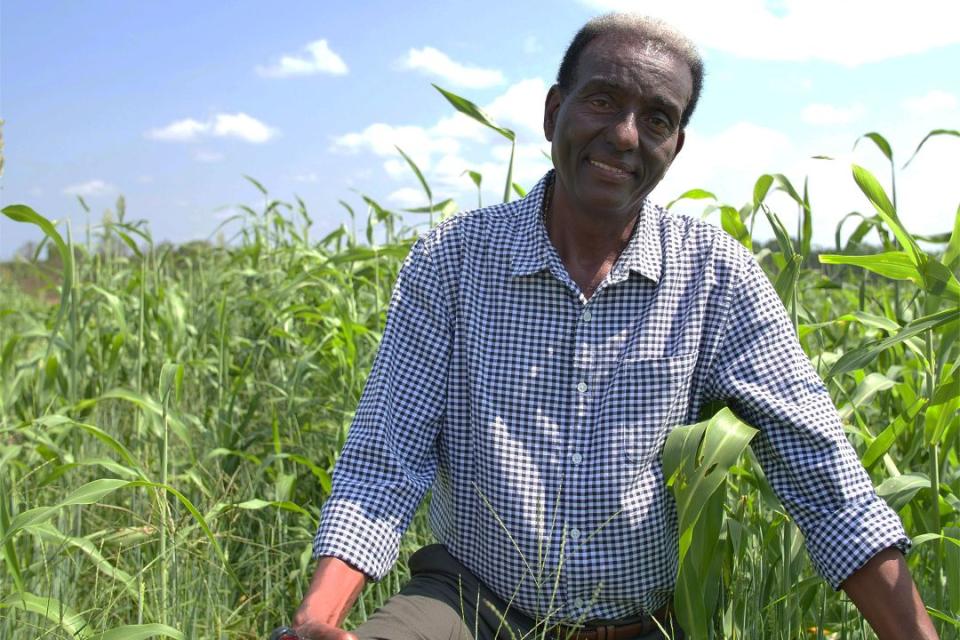
Dr Guta Bedane is leading the practical research on the ground.
(Photo credit: The University of Queensland)
Dr Guta Bedane is working in partnership with the NT’s Department of Agriculture and Fisheries and farmers across 6 sites in the Northern Territory including Darwin, Alice Springs and Katherine.
“Delving improves the soil twofold – it brings the negatively charged clay from the subsoil to the roots and there it attracts basically anything that's good for the crop, including organic matter and fertilisers,” Dr Bedane said.
“Bringing clay to the root zone will enhance soil water holding capacity, soil structure and microbial abundance with the addition of organic matter.
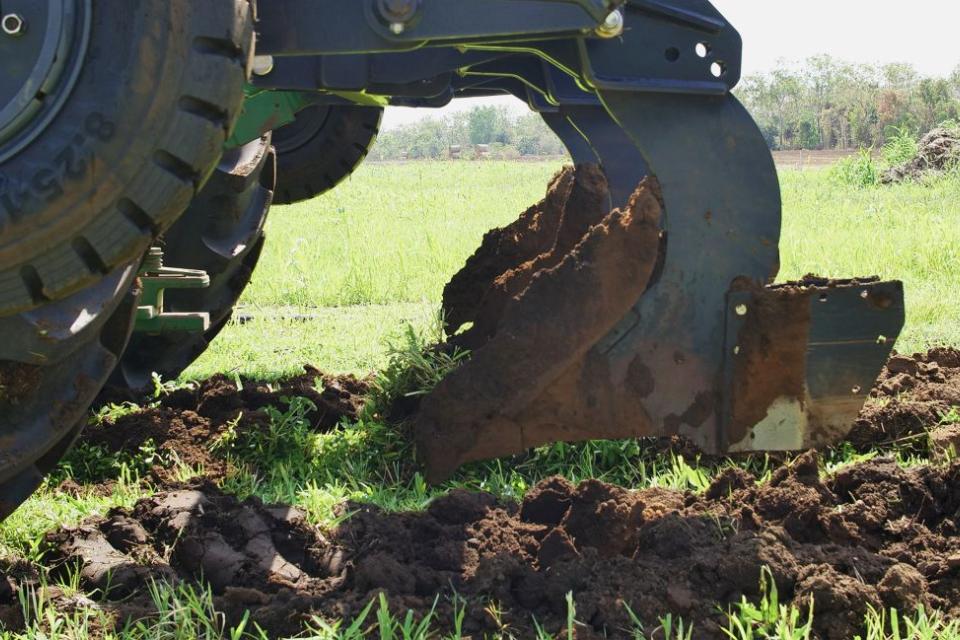
The delving implement is pushed more than 40 centimetres below the surface and dragged along by a tractor.
(Photo credit: The University of Queensland)
“This will boost the crop yield and biomass and increase the carbon in the soil.
“This is a very new concept in the Northern Territory, but it has proven success in large cropping areas of Western and South Australia.
“It's like renovating a house, it's not something you do every year or every 5 years. It's a long-term renovation that lasts for decades.”
As part of the trial, barley is being grown using 5 different treatments of: compost, green manure, delving alone, delving with green manure and the control, which is the existing farmer’s practice.
“We don't have concrete results yet, but we just did some biomass sampling and the crop grown on the delved plot with organic matter incorporated could yield about 30 per cent higher than the control treatment,” Dr Bedane said.
“We need to confirm results across sites and seasons, but early signs are very promising.”
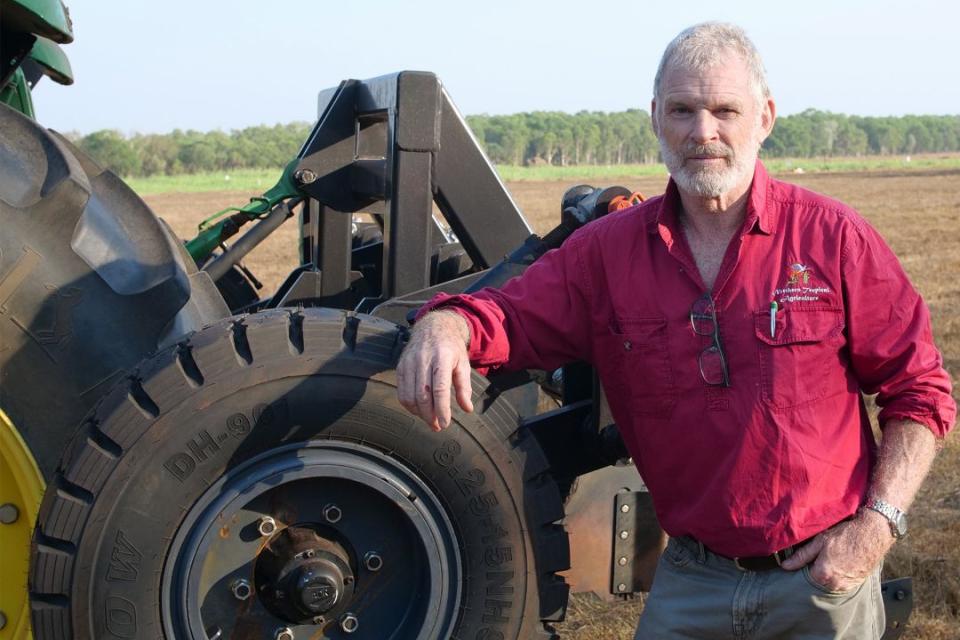
(Photo credit: The University of Queensland)
Darwin agronomist Fergal O’Gara is hosting one of the trial sites on his property.
He said the trial was an opportunity to learn more about the potential of improving local soils to be fertile and productive for cropping.
“It'll be very interesting to see if delving can help improve soil health in conjunction with other practices like liming and cover cropping,” Mr O’Gara said.
“You just never stop learning and every time you go out in the paddock, every time you put an implement in the paddock or put a new crop in the paddock, you do learn.”
The trial will continue for 4 years, with different crops planned for next season.
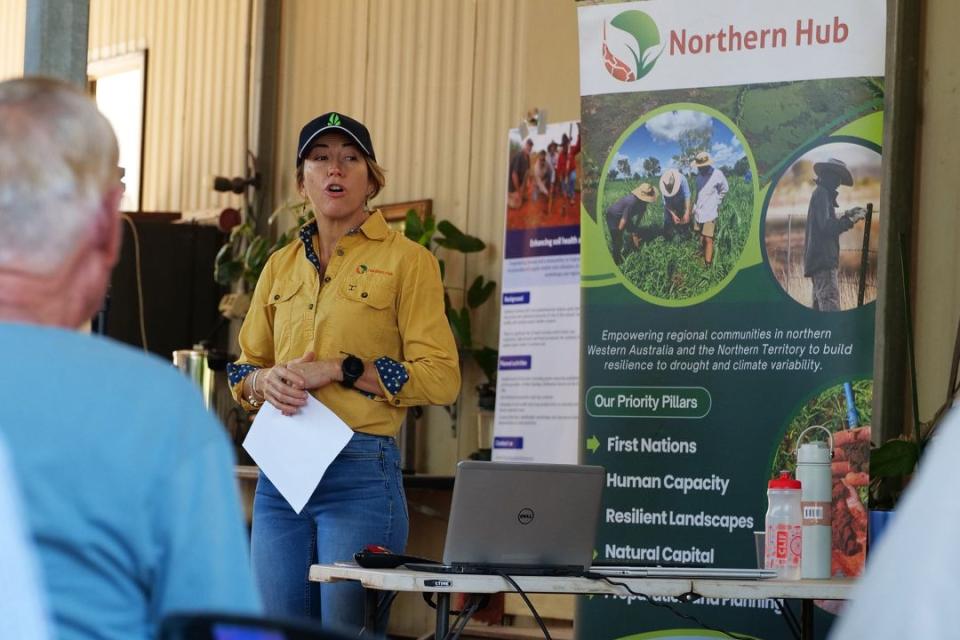
(Photo credit: The University of Queensland)
Northern Hub regional soil coordinator Emily Hinds said the trial was an opportunity to prove southern Australia techniques like delving could work in the Northern Territory.
“Bringing this research up here to demonstrate is really important,” Ms Hinds said.
“The cropping industry has been around for a while, but I guess we haven't had the science to confirm its potential.
“That is why I am so excited about this project because it gives us the evidence to move forward with confidence.”
At the end of the trial, the delving implement will be gifted to trial partner Northern Territory Department of Agriculture and Fisheries making it available to local producers.
Field day participants were taken through the crop and discussed the farming methods involved.
(Photo credit: The University of Queensland)
Field days will continue to be held throughout the trial offering local producers and industry stakeholders an opportunity to learn more about its potential.
Collaboration and acknowledgements
The project is supported by the Australian Government through funding from Climate-Smart Agriculture Program under the Natural Heritage Trust.Topics
Related articles
Biomedicine shows the way to future food crops
